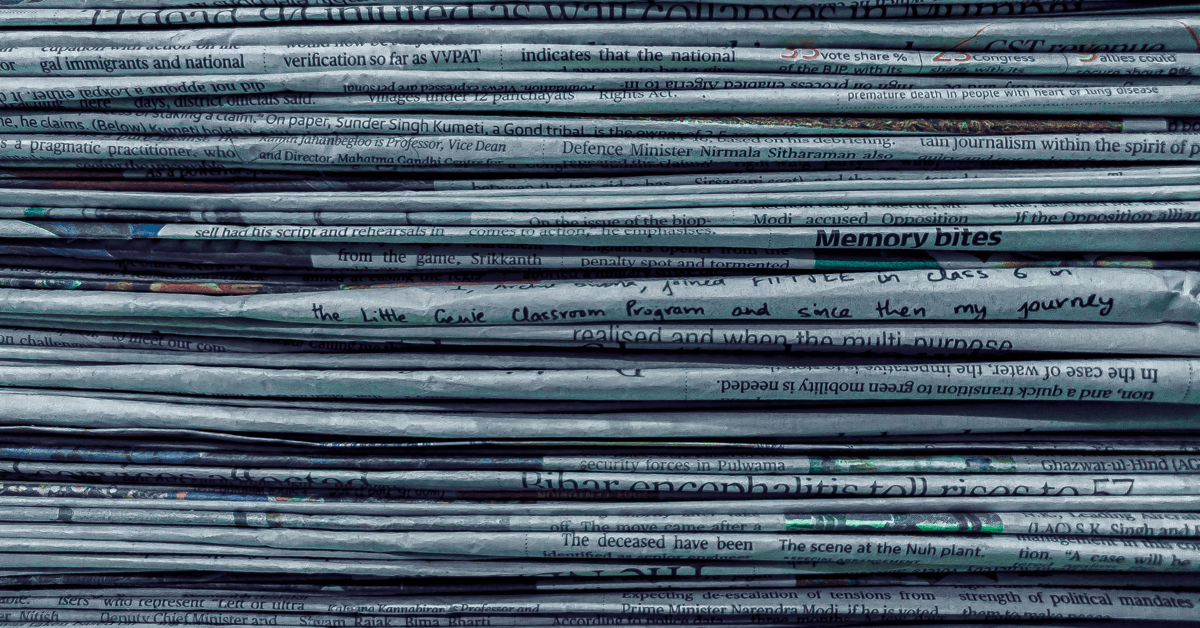Over nearly 1,800 daily and weekly newspapers have shut down since 2004. This number was reported in January before the coronavirus pandemic came into the picture, which has now made the situation even more dire. It is often true that times of crisis lead to innovation, creative thinking, and new opportunities. Today, many local outlets are experimenting with various paths to sustainability that could lead to an even stronger newsroom as the economy improves. Here’s a roundup of how some organizations are creating a path forward.
Teaming up with other papers
Some outlets are experimenting by joining forces with other local media. Last week Google announced The Matchup, which pulls the best sports content from local outlets all over the US to cover both college and professional sports. This compilation allows readers access to local in-depth reporting through a subscription. The subscription revenue, as well as money from any sponsorships, goes to the local organizations. Mike Orren from the Dallas Morning News said in the announcement, “Overall, the concept was born out of the notion that in order for local journalism to thrive, individual news organizations must lean into creating content and product experiences for our readers that is both unique and differentiated, and that we might need to collaborate with each other in the process.”
Others are teaming up to broaden their coverage. When the coronavirus pandemic made its way to the US, more than a dozen news organizations in Oregon agreed to share and cross-promote their COVID-19 coverage. The Oregonian claimed the collaboration allowed them to “pick up good information from other sources” without having to re-report the story and “cover more angles.”
A paywall with limits
BoiseDev, a locally-owned site focused on business and economy in Boise, Idaho, has created its own take on the paywall.
“The model of a one-size-fits-all paywall can work at a national level, but for local sites, a more crafty approach will have to take hold.” — Don Day, BoiseDev publisher
When Day started the site he believed that the community would support the BoiseDev if it put its readers first. So, he started to look at how to could implement a paywall, but also create a better experience for the sites’ readers. Enter the “time wall.” It lets members see a selection of stories first and then they are released to the greater community later. The stories are invisible to non-members until they are released. Day says his team is working hard to deliver news driven by their 800 members, “because every community deserves local news.”
Newsletters
A study out of Northwestern University found that building a habit with readers rather than pageviews is what matters most for keeping subscribers, so naturally, daily newsletters for readers seems like a no brainer. The Chicago Tribune has over 15 newsletters and because of their success, they’ve made two newsletters subscriber-only. During the pandemic, many local newspapers created a newsletter specifically for coronavirus coverage because of the rapid changes in information daily. In addition to putting their coronavirus coverage outside of their paywall, the Philadelphia Inquirer’s “newsroom and product teams quickly collaborated on a free daily coronavirus newsletter,” said Evan Benn of the Inquirer. Their editors also made sure to communicate directly with readers about how they were handling coverage to keep their readers coming back during this unprecedented time.
The non-profit route
The Salt Lake City Tribune which was struggling to stay in business received approval last year to become the first daily local paper to shift to nonprofit status. The nonprofit status allows the paper to receive donations in addition to its revenue from advertising and subscriptions. “The Tribune is now a news organization funded by the people, for the people. And we’re pioneering the way for newspapers everywhere.” read the Tribune’s message to its readers. This sentiment was echoed by Alberto Ibargüen, the president of the John S. and James L. Knight Foundation, “This is an important decision that recognizes local news as a public good, something that strengthens the community.”
As news deserts across America continue to expand, OpenWeb strives to help support local news and work with publishers to come up with innovative solutions for achieving sustainability. Learn more here.


